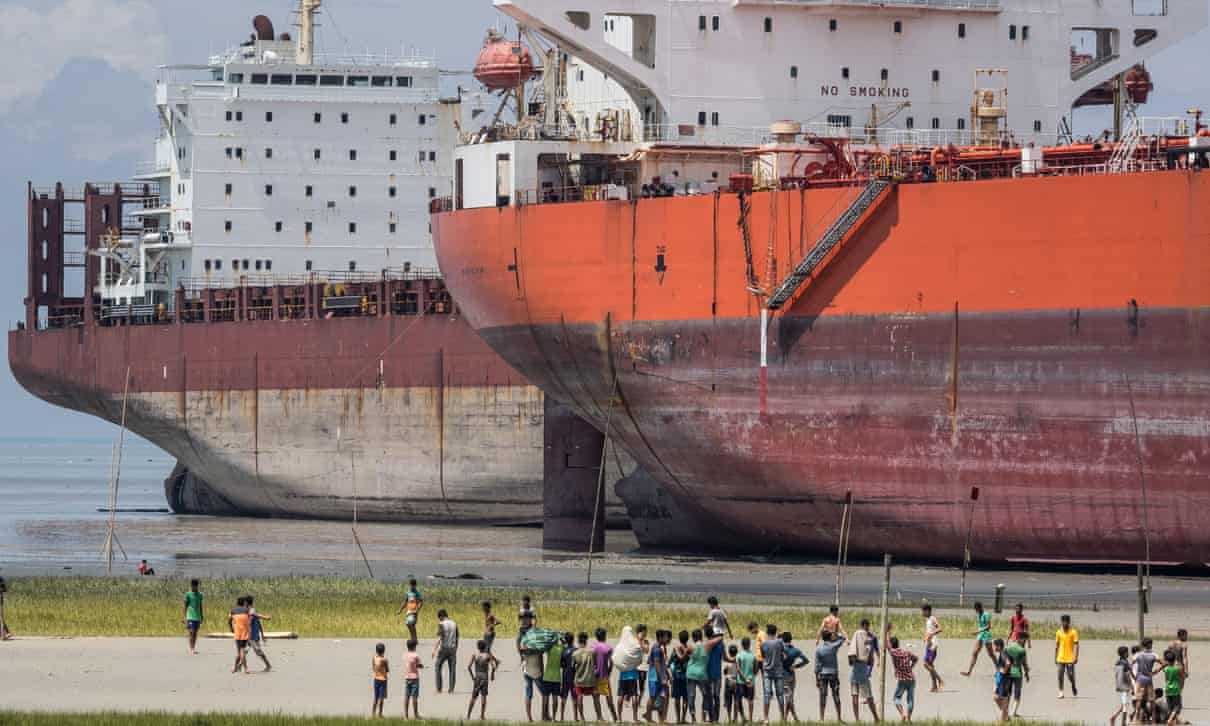High court backs negligence claim of Bangladeshi ship-breaker’s widow

Image collected
A widow whose husband fell eight storeys to his death while splitting up a supertanker in Bangladesh can pursue a negligence claim against Maran (UK), a British company mixed up in ship’s sale, according to a high court ruling.
The judge in London ruled shipping firm Maran (UK) Ltd arguably had a duty of care towards Mohammed Kalil Mollah, 32, who died focusing on the Ekta, a 300,000-tonne vessel, that was being scrapped at a yard in Chittagong, now Chattogram, Bangladesh. The Guardian wrote about Mollah’s death earlier this season.
Maran (UK), section of the Greek Angelicoussis shipping group, among the largest private fleets on earth, is not the Ekta’s owner or Mollah’s employer but was reported to be the company in charge of the tanker being in Bangladesh, where working conditions are notoriously dangerous. A huge selection of people, mostly without contracts, die or are injured every year in falls, explosions and accidents.
In his judgment, Mr Justice Jay refused to strike out a claim for negligence brought by Hamida Begum, Mollah’s widow, against Maran, who sold the Ekta to another company for breaking. He agreed with Begum’s solicitors, Leigh Day, who argued that Maran had influence over where in fact the ship was scrapped and could have ensured it was recycled in an ethical manner, but would need to accept a lesser price for it.
If successful in a future trial, Begum could be awarded up to £100,000 in damages.
Oliver Holland, somebody at Leigh Day, said the ruling was a “great relief” to Begum. “The judgment passed down today is a fantastic relief to your client, who has suffered not only the increased loss of her husband, but of her security and livelihood.
“If Maran (UK) Ltd was created to accept that it owed Mr Mohammed Kalil Mollah a duty of care, maybe which will go some way to making UK shipping companies think twice about accepting greater financial reward because of their end-of-life vessels at the price of the environment and the lives of south Asian workers.
“It has wider significance because it is saying that any UK shipping company, if they send their vessels to Bangladesh or India or Pakistan to be split up, there’s a potential liability towards ship-breaking workers who are injured or die while splitting up their vessel.
'Mollah’s life was typical': the deadly ship graveyards of Bangladesh
Read more
“These vessels are toxic, packed with asbestos and radioactive material and there are no or hardly any health or safety measures for workers. The vessels are beached, there are no cranes, the employees effectively need to take them apart yourself.
“The companies are setup by creating post-box companies, sometimes in the Caribbean, that own these vessels so when they sell them to Bangladesh they don’t sell them directly but sell them to cash buyers who hold them for some weeks and then send them to south Asia.”
The judge said: “The proximate cause of the accident was the deceased’s fall from a height, but on a broader, purposive approach the accident resulted from a chain of events which led to the vessel being grounded at Chattogram.”
He accepted that in the last decade more than 70% of vessels by the end of their operating lives are split up using the “beaching” method. He said: “[The Defendant argued that] given that nearly all vessels finished up in south Asia, it might not be said that [Maran UK Ltd] were deviating from standard practice. I reject that submission on the straightforward basis that if standard practice was inherently dangerous, it cannot be condoned as sound and rational despite the fact that almost every person does the same.”
Source: https://www.theguardian.com
Tags :
Previous Story
- An expansionary monetary policy or nothing
- How three financial impacts of Covid-19 could spell...
- 29,369 personnel lose jobs after Eid
- Ensuing recession and main economic downturns
- Bangladesh receives initial parcel train carrying dried out...
- Garment workers lose careers across Asia, stores found...
- Pharma corporations count their blessings as exports rise
- Becoming the next Asian export powerhouse